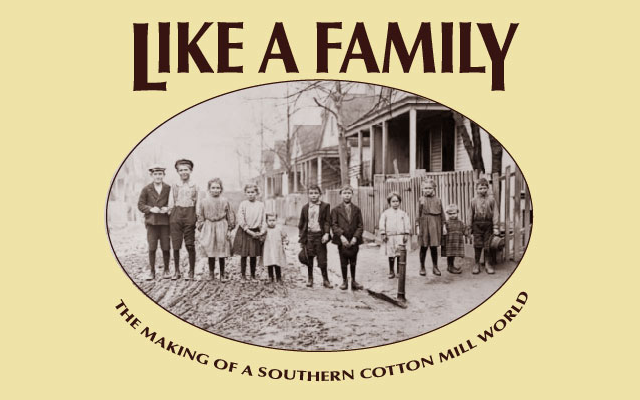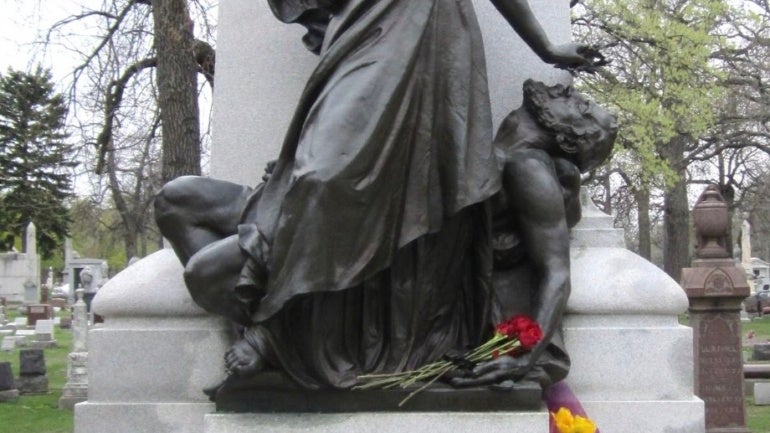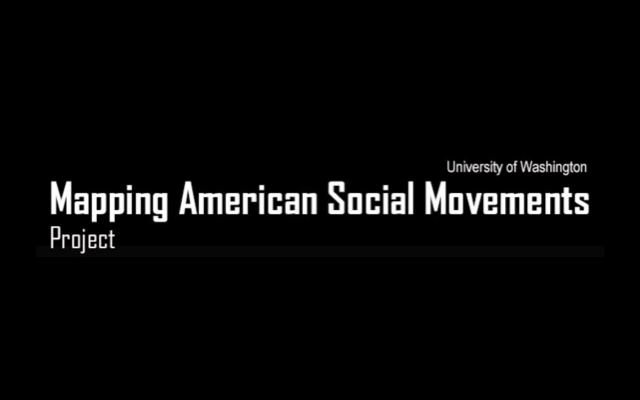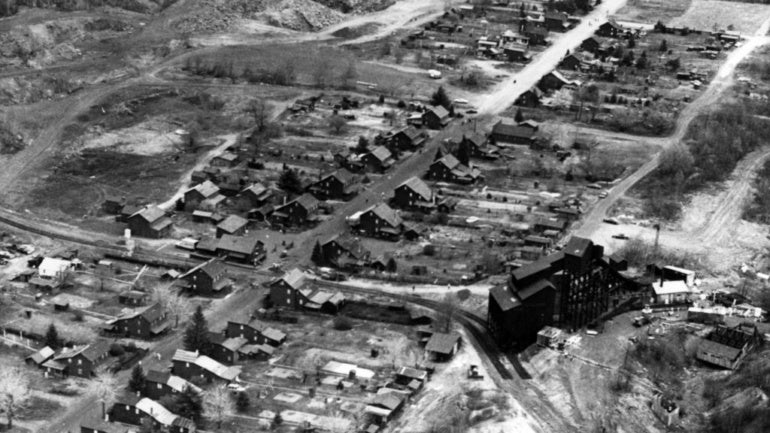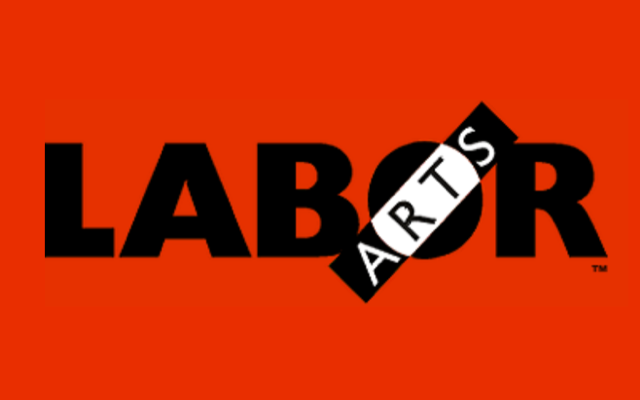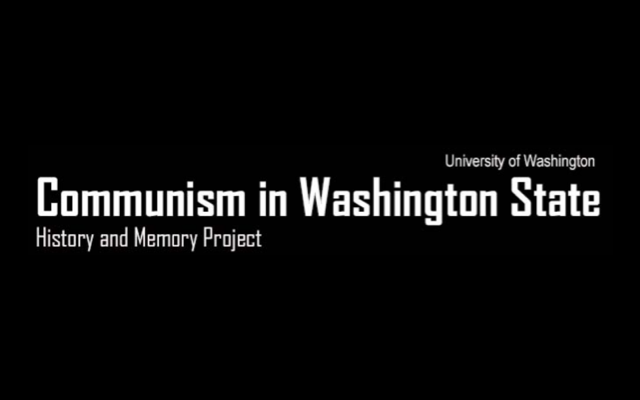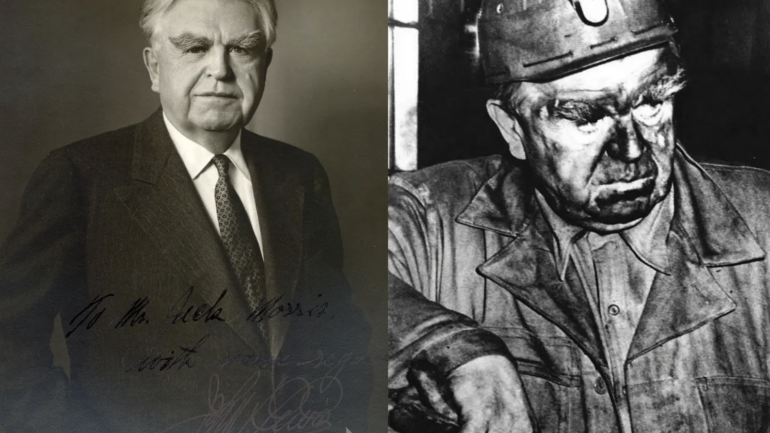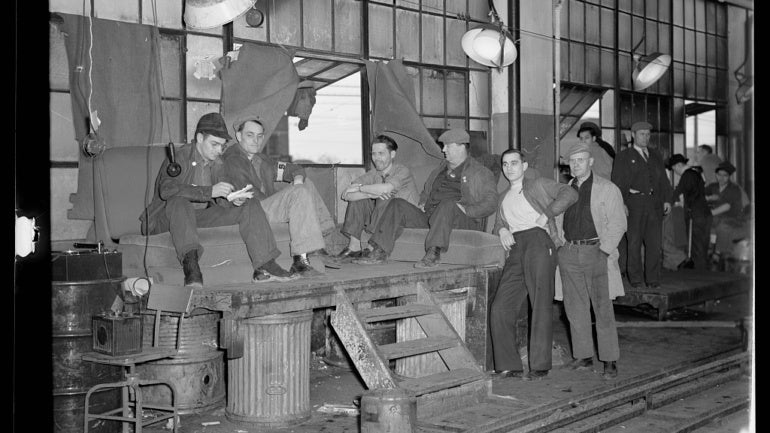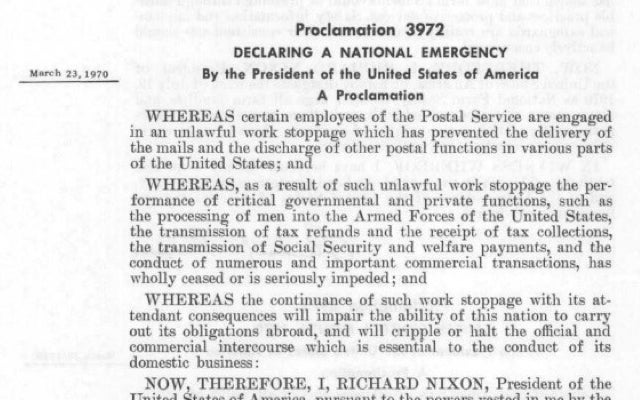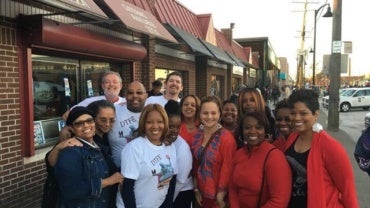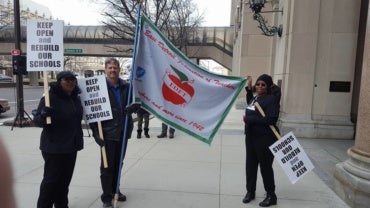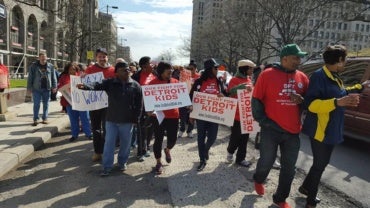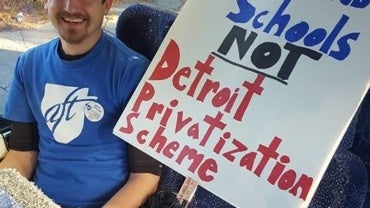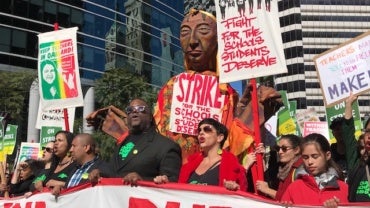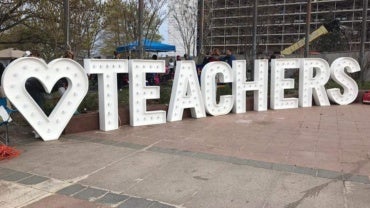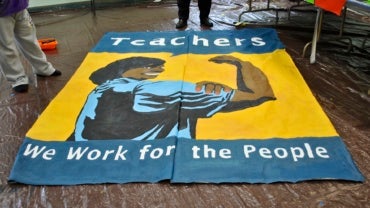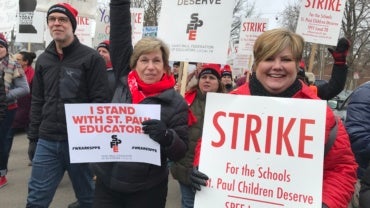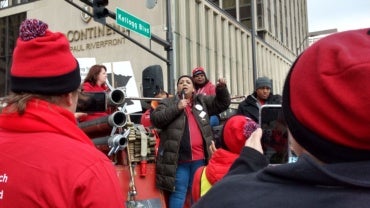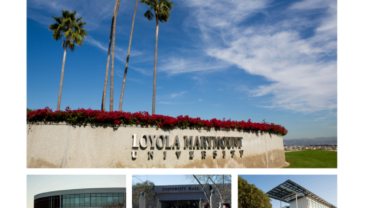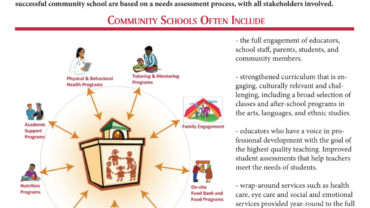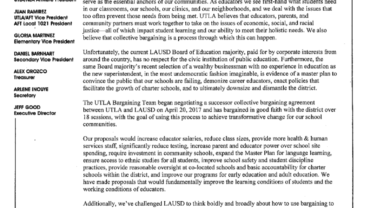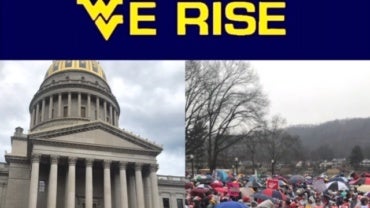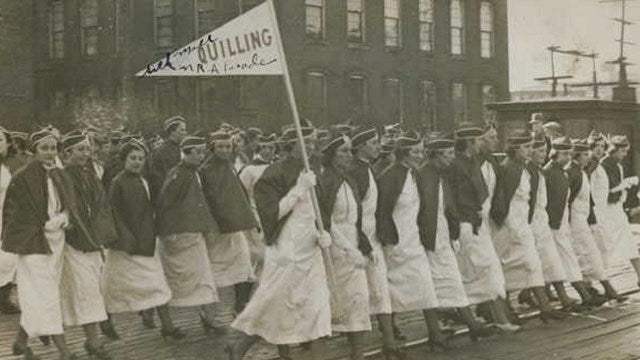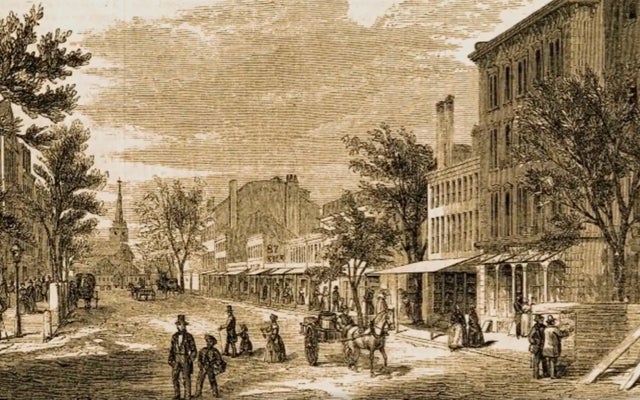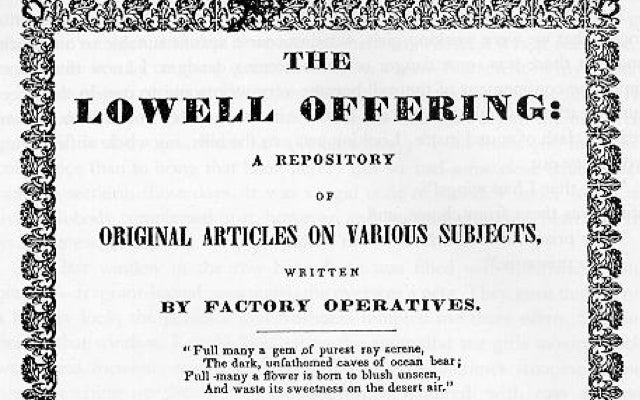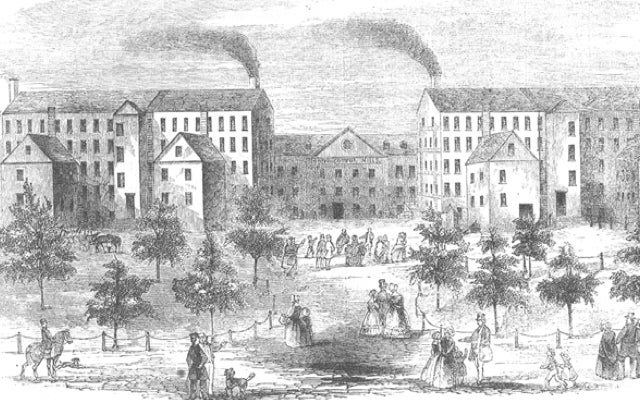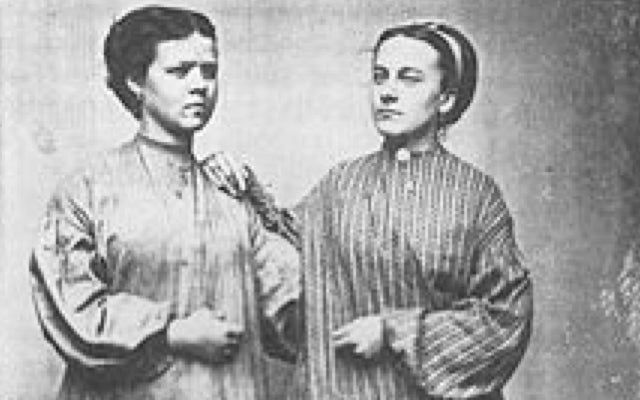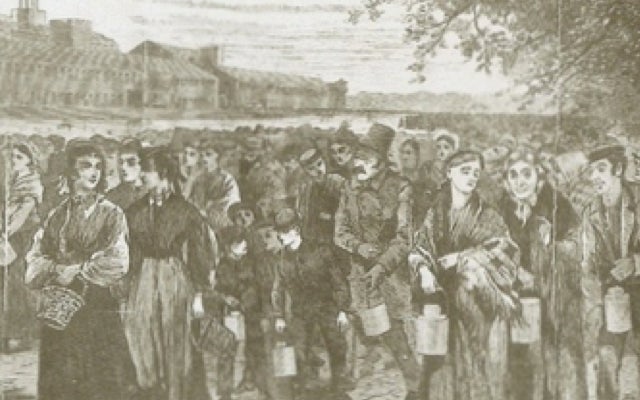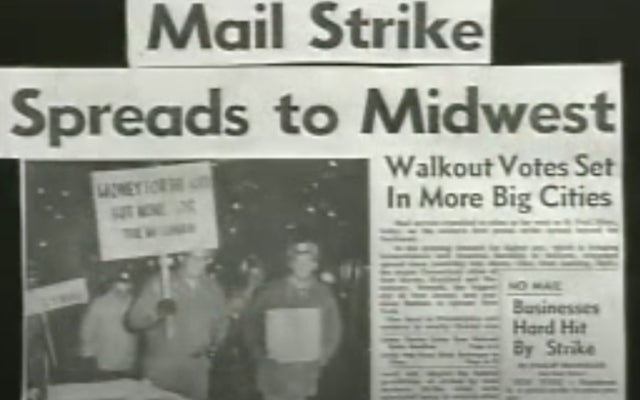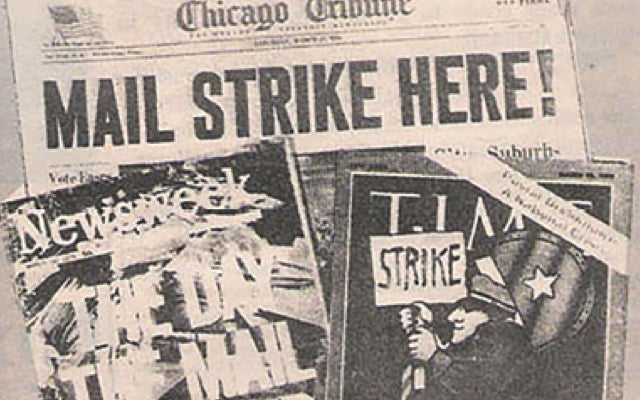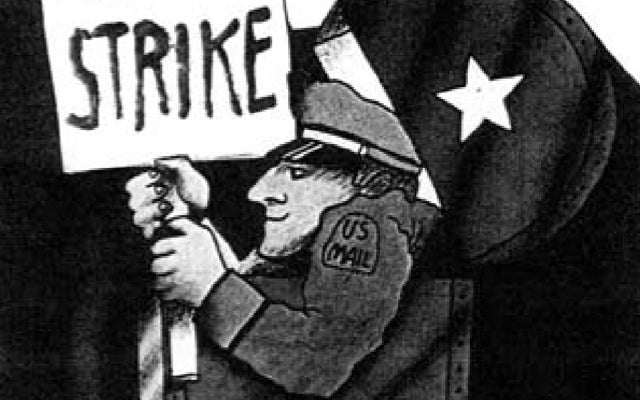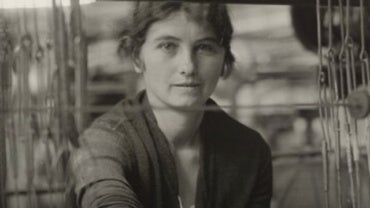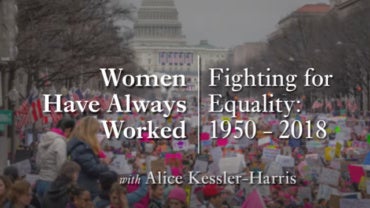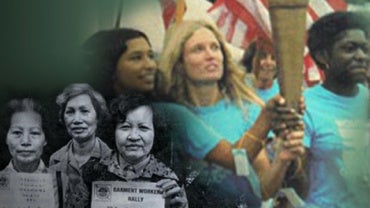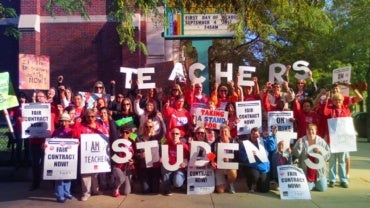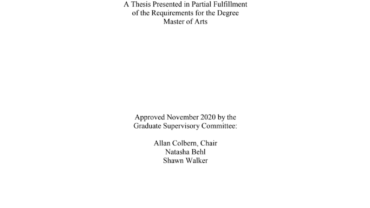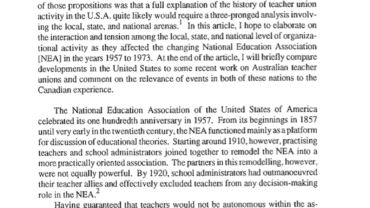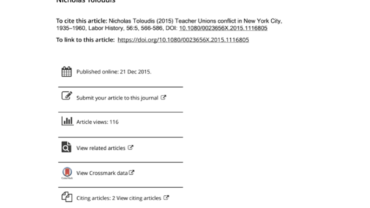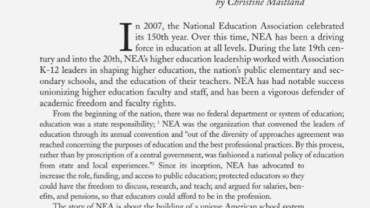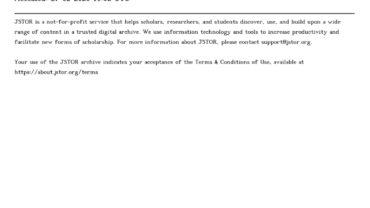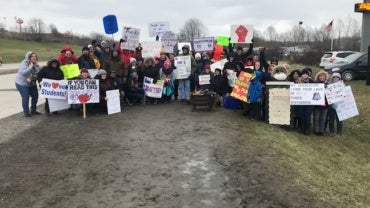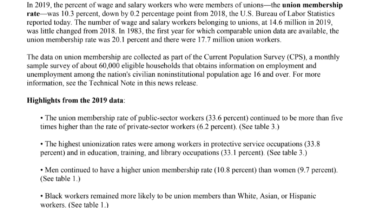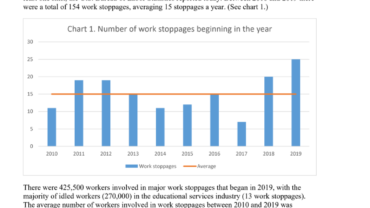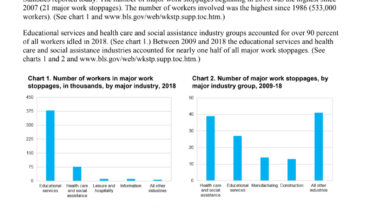Collections and Sites
Discover & Learn
Our Archive of History Sites
We've collected over 70 sites that we find will be beneficial to your research and studies. View them all.
Designed for both high school and college classrooms, History Matters helps students actively interpret evidence about the lives of ordinary Americans. It contains descriptions of and links to more than 1000 websites and first-person primary source documents, guides for analyzing historical evidence, classroom activities, and…
This site was created by Dr. James Leloudis and Dr. Kathryn Walbert as a part of the American Historical Association’s program Teaching and Learning in the Digital Age, funded by the National Endowment for the Humanities. In building this website, our intent is to make…
It shall be the Purpose of the Illinois Labor History Society to encourage the preservation and study of labor history materials of the Illinois Region, and to arouse public interest in the profound significance of the past to the present.
America at Work, America at Leisure: Motion Pictures from 1894-1915 consists of 150 motion pictures, 62 of which also appear in other online collections. The majority of the films are from the Paper Print Collection, while the remainder are from the George Kleine Collection, both…
The CIO transformed American labor and American politics. Defying the American Federation of Labor’s commitment to craft unionism, the Committee for Industrial Organization was established in 1935 by leaders of the United Mine Workers and other AFL unions who embraced industrial union organizing strategies.
The Studs Terkel Radio Archive (STRA), launched in May 2018 on Studs Terkel’s 106th birthday, is a digital platform whereon, eventually, will live the majority of the 5,600 radio programs Terkel created during his career at WFMT in Chicago between 1952 and 1997 live. This…
Perched atop a mountain ridge at the center of one of the planet’s largest concentrations of disturbed terrain, Eckley Miners’ Village is a world within a world. Visit our authentic 19th-century company mining town, and experience the lives of the working-class families who once fueled America.
LaborArts presents powerful images to further understanding of the past and present lives of working people. Our events and contests expand on this effort. The site includes curated Exhibits on particular subjects; the Collection, where one can search images from exhibits and other sources; and…
This site explores the controversial history of the Communist Party in the Pacific Northwest from 1919 to the present. The project is sponsored by the Harry Bridges Center for Labor Studies at the University of Washington and is one of the Pacific Northwest Labor and…
John L. Lewis was born February 12th 1880, to Welsh immigrant parents in the coal mining camp of Cleveland, Iowa- one mile East of Lucas, Iowa. He began working in the Big Hill Coal Mine in Lucas, IA as a teenager, joining the UMWA Local #799 in 1900. He began his rise to power in the United Mine Workers of America and served as President of the UMWA for forty years and was founder of the Congress of Industrial Organizations.
Once called “the strike heard round the world,” the first major labor dispute in the U.S. auto industry ended after General Motors signed a contract with the United Auto Workers Union on February 11, 1937.
“Wildcat” strikes, like the one that teachers used effectively in West Virginia in February/March of this year, are when union members walk off the job despite the wishes of their leadership. By definition, they are something uncontrollable and spontaneous.
When Teachers Mobilize Media
When Teachers Mobilize was our first major project collecting and organizing media, oral histories, articles and subject matter covering teacher strikes, protests & rallies.
The Chicago Teachers Union argues for proven educational reforms to dramatically improve education of more than 400,000 students in a district of 675 schools. These reforms are desperately needed and can head Chicago towards the world-class educational system its students deserve.
The repeated argument I hear from people who are opposed to Oklahoma teachers walking out tomorrow is “we knew what we were doing when we signed up for this.” You’re right. We did. We signed up for the hardest job in the world and putting our kids first. Here’s a poem about it.
Teaching in St. Paul Public Schools was a destination for me because I knew our schools had a gorgeous student population that reflected our world. I also found an amazing group of dedicated, talented colleagues I am honored to work alongside and represent.
A report covering salary, class size & staffing, academic freedom, shared decision making, assignments and more.
LMU is a private Catholic university with 6,250 undergraduates, 2,150 graduate students and 1,100 law students from diverse backgrounds and many perspectives.
UTLA believes every child has a right to attend a high-quality Sustainable Community School in their neighborhood.
The members of United Teachers Los Angeles believe that neighborhood public schools should serve as the essential anchors of our communities. As educators we see first-hand what students need in our classrooms, our school, our clinics, and our neighborhoods, and we deal with the issues that too often prevent those needs from being met.
Lowell Mill Girls
Lowell’s water-powered textile mills catapulted the nation – including immigrant families and early female factory workers – into an uncertain new industrial era. Nearly 200 years later, the changes that began here still reverberate in our shifting global economy. Explore Lowell, a living testament to the dynamic human story of the industrial revolution.
The film describes the extraordinary anti-slavery efforts taking place in the mid-19th century in Lowell. Forrant and Grooms visit the sites that still exist in downtown Lowell where abolitionist activity occurred and where freedom seekers operated businesses.
The Lowell mill girls were young female workers who came to work in industrial corporations in Lowell, Massachusetts, during the Industrial Revolution in the United States.
In the early 19th century the United States of America began to experience many changes. In parts of the country there was a shift from an agrarian society to an industrial society.
In the early 19th century the United States of America began to experience many changes. In parts of the country there was a shift from an agrarian society to an industrial society.
Lowell built on the advances made in the British textile industry, such as the use of the power loom, to industrialize American textile production. He was the first factory owner in the United States to create a textile mill that was vertically integrated.
Postal Workers Strike
APWU remembers the Great Postal Strike of March 1970. For more background on the successful wildcat strike that earned postal workers the right to bargain collectively for better pay and benefits.
The first mass work stoppage in the 195-year history of the Postal Service began on March 18, 1970, with a walkout of letter carriers in Brooklyn and Manhattan who were demanding better wages.
“Wildcat” strikes, like the one that teachers used effectively in West Virginia in February/March of this year, are when union members walk off the job despite the wishes of their leadership. By definition, they are something uncontrollable and spontaneous.
The wildcat Postal strike that began on March 18, 1970 signaled the end of collective begging and the beginning of collective bargaining that raised hundreds of thousands of postal workers, craft and management, from poverty level wages to middle class wage earners.
#Women Labor
Though it’s a relatively recent field of study, women’s history is inscribed across all of the Harvard Library holdings gathered since 1638. By examining those holdings afresh and querying them in a new and feminist light, the curators of the Women Working collection have aggregated…
Women Have Always Worked: Fighting for Equality: 1950–2018.
An exploration from an online edX course.
Women Have Always Worked: Fighting for Equality: 1950–2018.
An exploration from an online edX course.
Women Have Always Worked: Fighting for Equality: 1950–2018.
An exploration from an online edX course.
Women Have Always Worked: Fighting for Equality: 1950–2018.
An exploration from an online edX course.
Women Have Always Worked: Fighting for Equality: 1950–2018.
An exploration from an online edX course.
Women Have Always Worked: Fighting for Equality: 1950–2018.
An exploration from an online edX course.
Women Have Always Worked: Fighting for Equality: 1950–2018.
An exploration from an online edX course.
Women Have Always Worked: Fighting for Equality: 1950–2018.
An exploration from an online edX course.
Women Have Always Worked: Fighting for Equality: 1950–2018.
An exploration from an online edX course.
Women Have Always Worked: Fighting for Equality: 1950–2018.
An exploration from an online edX course.
Women and Social Movements in the United States, 1600-2000, is a resource for students and scholars of U.S. history and U.S. women’s history. Organized around the history of women in social movements in the U.S. between 1600 and 2000, the collection seeks to advance scholarly…
#Research Collections
UTLA believes every child has a right to attend a high-quality Sustainable Community School in their neighborhood.
The members of United Teachers Los Angeles believe that neighborhood public schools should serve as the essential anchors of our communities. As educators we see first-hand what students need in our classrooms, our school, our clinics, and our neighborhoods, and we deal with the issues that too often prevent those needs from being met.
A report covering salary, class size & staffing, academic freedom, shared decision making, assignments and more.
Teaching in St. Paul Public Schools was a destination for me because I knew our schools had a gorgeous student population that reflected our world. I also found an amazing group of dedicated, talented colleagues I am honored to work alongside and represent.
The Chicago Teachers Union argues for proven educational reforms to dramatically improve education of more than 400,000 students in a district of 675 schools. These reforms are desperately needed and can head Chicago towards the world-class educational system its students deserve.
In 2012, the Chicago Teachers Union (CTU) issued the groundbreaking report, The Schools Chicago’s Students Deserve. The report provided a counter-narrative to ideas popular among corporate education reformers (or de-formers, as some like to say).
The ongoing Red for Ed movement in Arizona sparks an interesting discussion on its place as a social movement. This thesis examines the movement in close detail, particularly in regard to how it fits within the social movement literature’s insider/outsider framework.
Not long ago, in the pages of this journal, I argued a number of propositions about the current state of historical research in the area of teacher unionism. One of those propositions was that a full explanation of the history of teacher union activity in the U.S.A. quite likely would require a three-pronged analysis involving the local, state, and national arenas.
While studies of the New York City Teachers Union (TU) generally attribute its eventual demise to the Red Scares of the 1940s and 1950s, this article situates the TU in the history of New York City teachers associations more generally.
In 2007, the National Education Association celebrated its 150th year. Over this time, NEA has been a driving force in education at all levels.
LMU is a private Catholic university with 6,250 undergraduates, 2,150 graduate students and 1,100 law students from diverse backgrounds and many perspectives.
If the 1960’s were known as the era of vigorous student militancy in most sectors of American education, the 1970’s may well go down in history as the decade of the angry teacher.
Photo Galleries
A gallery of photos to explore.
#Department of Labor
In 2019, the percent of wage and salary workers who were members of unions—the union membership rate—was 10.3 percent, down by 0.2 percentage point from 2018, the U.S. Bureau of Labor Statistics reported today.
In 2019, there were 25 major work stoppages involving 1,000 or more workers and lasting at least one shift, the U.S. Bureau of Labor Statistics reported today. Between 2010 and 2019 there were a total of 154 work stoppages, averaging 15 stoppages a year.
In 2018, there were 20 major work stoppages involving 485,000 workers, the U.S. Bureau of Labor Statistics reported today. The number of major work stoppages beginning in 2018 was the highest since 2007 (21 major work stoppages). The number of workers involved was the highest since 1986 (533,000 workers).



